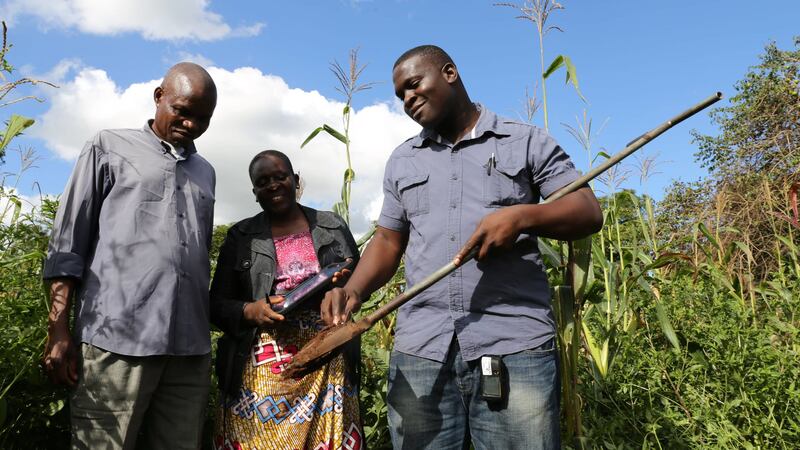The amount of nutrients people get from the crops they eat is a type of postcode lottery, a new study suggests.
Researchers have discovered more about the relation between soils, crops and micronutrient deficiencies among people living there.
They analysed the grain of more than 3,000 cereal crop samples from farmers’ fields in Ethiopia and Malawi.
The team found that the amount of the dietary micronutrients calcium, iron, selenium, and zinc in the grain varied substantially with location, with some areas showing much lower levels of than others.
Some cereal types, such as millets, are more nutritious than others, such as maize.
Whether deficiencies are likely in an area also depends on its soils and landscapes, the study suggests.
The co-lead authors of the paper are Dr Dawd Gashu, working in the Centre for Food Science and Nutrition at Addis Ababa University (AAU) in Ethiopia, and Dr Patson Nalivata, in the Department of Crop and Soil Science at Lilongwe University of Agriculture and Natural Resources (Luanar) in Malawi.
Dr Gashu said: “Nutritional surveillance work on the quality of staple cereals is an important part of wider public health policies to address micronutrient deficiencies and we hope that this type of work is now adopted in more countries.”
Dr Nalivata added: “By learning more about how the nutritional quality of cereal grains is linked to soil types and landscapes, as we have in this study, we are now better able to advise farmers how to choose and cultivate more nutritious crops.”
The body needs micronutrients – which includes vitamins and minerals – from the diet in small quantities, for a range of functions.
Micronutrient deficiencies pose a serious risk to human health, including the growth and cognitive development of children and susceptibility to infectious and non-communicable diseases, and are common globally.
Writing in Nature, the researchers said: “There is clear evidence for a link between grain micronutrient concentrations and human food intake, but the direct effects of such dietary boosts to health are more difficult to establish.
“For example, in addition to the issues of bioavailability discussed, it is worth considering that much of what people consume comes from local markets, and not from their own fields.”
The researchers were led by the University of Nottingham and its Future Food Beacon as well as the academics and researchers from AAU in Ethiopia and Luanar in Malawi, working on the GeoNutrition project.








